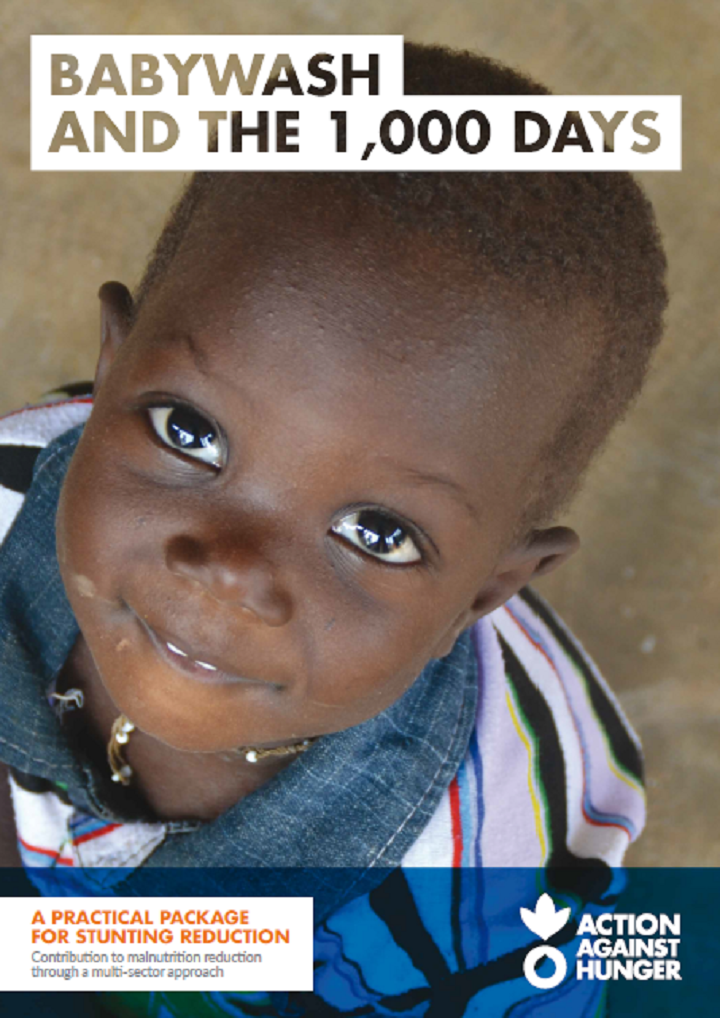Baby WASH and the 1,000 Days. A Practical Package for Stunting Reduction. Contributing to Malnutrition Reduction Through a Multi-Sector Approach Dominguez, E. (2017)
Poor WASH conditions are thought to be one of the main causes of child stunting. The household environment in which children develop and grow is highly related to their nutritional status. Direct and indirect pathways exist between WASH and stunting, from diarrheal diseases and Environmental Enteric Dysfunction (EED), to socio-economic conditions and time constraints to child care practices. The BabyWASH concept has recently emerged to link the WASH, Nutrition, Maternal, Newborn and Child Health and Early Childhood Development sectors. Its goal is to have a more profound impact on child health outcomes in order to improve well-being in the first 1,000 days of life. The prevention of stunting is probably the most significant impact expected from this approach through the reduction of the EED pathway and other WASH links. This document will present how the BabyWASH approach can contribute directly to Action Against Hunger’s vision of eradicating hunger and undernutrition in all its forms, and in particular, stunting. A package of activities is proposed in order to integrate WASH, nutrition and health sectors around the 1,000 days for stunting prevention. The package has been conceived to focus on household level with the objective of complementing already existing programmes that address other WASH needs, such as health centers and schools.
Bibliographic information
Dominguez, E. (2017). Baby WASH and the 1,000 Days. A Practical Package for Stunting Reduction. Contributing to Malnutrition Reduction Through a Multi-Sector Approach Action Against Hunger
Filter / Tags
Guidelines and manualsEnglish
Downloads
Baby WASH and the 1,000 Days. A Practical Package for Stunting Reduction. Contributing to Malnutrition Reduction Through a Multi-Sector Approach
Type: application/pdf
Size: 2.74 MB

Published in: 2017
Pages: 52
Publisher:
Action Against Hunger
Author(s):
Dominguez, E.
Uploaded by:
GIZ
Deutsche Gesellschaft für Internationale Zusammenarbeit (GIZ) GmbH
